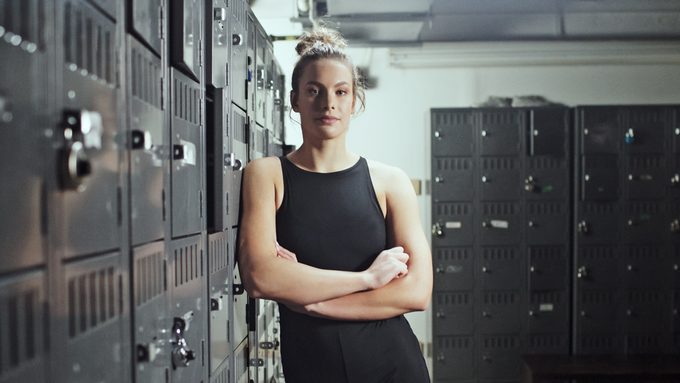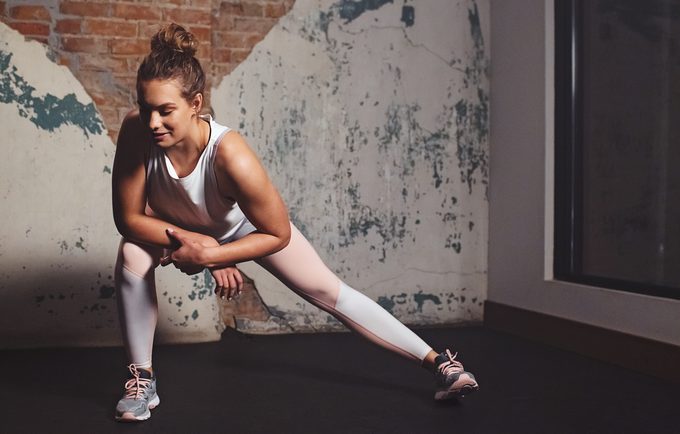How Olympian Penny Oleksiak Handles the Pressure of Success
How the 18-year-old manages the expectations set by her breakout season at the Rio Olympics.

At just 18-years-old Penny Oleksiak has already accomplished more than most athletes hope to accomplish in a lifetime. At the 2016 Summer Olympic Games in Rio, media affectionately dubbed her “Canada’s lucky Penny,” after she became the first Canadian athlete to win four medals at a single summer Games. She was also Canada’s youngest-ever Olympic champion after typing for the gold medal in the 100-metre freestyle swim (she was 16 at the time), and was named Canada’s flag-bearer in the Rio closing ceremony.
In the lead up to the Olympic Games in Tokyo, I caught up with Oleksiak while she was in Toronto with ASICS Canada’s “I Move Me” campaign to promote health and happiness through movement. Here are the highlights from our chat.
You had this breakout performance at the 2016 Olympics, how do you handle the pressure to live up to that?
That’s something I’m definitely learning to deal with better. I think last year I kind of let it get the best of me with the expectations and everything. Going into Worlds and having everyone freak out like ‘oh the girls that tied for gold are going to race again’ and I was freaking out the whole time like ‘oh my goodness,’ ‘I need to win’ and stuff. Now, I’m learning to deal with that pressure better and just push it to the back of my mind.
Before the Olympics I had no expectations, no pressure, and that’s what helped me I guess—making light of everything.

What does a typical training day or week look like for you?
I train once or twice a day with swimming. Every day I either have some sort of dry-land activity. I’ll either do a core session which will be an hour of just core – that kills me usually. I’ll do that before an afternoon training session if I have a double. When I just have one swim practice in the morning, I’ll do an hour and a half of weights. On Saturdays I try to do weights and then go for a run in a stadium. Lots of stairs.
(Related: How Canadian Olympian Phylicia George Trains in Quarantine)
Do you have any pre-race routines or rituals?
I have a routine that I go through but I wouldn’t say I have any superstitions or rituals. I try to clear my head and make everything light and fun.
I listen to a lot of music. My life is music all the time. Before I race I definitely listen to more rap music to get me ready. Drake always works and Kanye has some pretty goos stuff right now and Travis Scott – anyone who really just hypes me up.
How do stay motivated?
People are always wondering if I struggle to stay motivated, especially after the Olympics. My main thing is as long as I know I can fix something or try and make it better, that’s my motivation – to try and get better. After every race I’m very hard on myself, just knowing that I can always get better.
(Related: 5 Olympian-Worthy Coping Strategies to Use During the Pandemic)
Lessons learned?
The main thing, that I’ve only really learned recently, is that there are going to be times when you’re not your best and there are going to be times when you’re at your best so you can’t just think that you’re going to get better and better all the time. You have to look at it like you’re going to get better, then you might get worse, then you might plateau and then you’ll improve again. There are ups and downs.
What are your mantras?
I always tell myself to have fun and not take it too seriously because at the end of the day I’m going to put 100 percent into it every race I do.
Next: How Canadian Ellie Black Prepared for the 2021 Olympics, Despite the Pandemic




